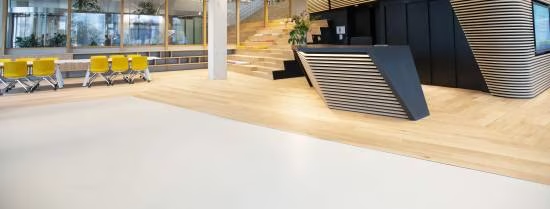Tumbleweed, crickets chirping and dusty classroom seats. Where everyone thought lecture halls and office space would be filled up again after the lockdowns, the opposite has happened.
From Tilburg to Leiden, from Amsterdam to Rotterdam, students (and staff) decided en masse to permanently work or study from home, for at least a part of the time. This in turn diminishes interaction in the physical setting that is deemed necessary in education. What does this phenomenon say about the way we’re teaching at the University? Do we need to reinvent the meaning of ‘being on campus’?
On Monday the 4th of July, 10:30-11:30 we will host a teacher’s panel in the Education Lab. Together with our colleagues Zouhair Hammana (ESHCC), Marloes Nederhand (ESSB) and Sam Rijken (EsPhil) we will discuss the future of the physical campus. Expect a critical and constructive conversation where you can also share your thoughts and experiences as well.
Sign up via the registration form at the bottom of this page to attend the panel discussion. Complete the registration form below. Lunch is provided! English spoken.
Who will join us at the table?
Zouhair Hammana
Zouhair Hammana (1990) is a PhD candidate at the Erasmus Research Centre for Media, Communication and Culture. Under the supervision of prof. dr. Susanne Janssen and dr. Marc Verboord, Zouhair studies the engagement with (cultural) diversity within secondary education, as part of the Erasmus Initiative Vital Cities and Citizens.
Sam Rijken
Sam Rijken is a PhD candidate at Erasmus School of Philosophy. After studying physics and philosophy of science, Sam now studies the role of imagination in science and in science education. Primarily, he aims to understand what thought experiments do and how we can use them to learn (or teach) about the world.
Marloes Nederhand
Marloes Nederhand is Assistant Professor in Curriculum Innovation and Professional Skills at the Department of Psychology, Education and Child Studies at the Erasmus University. She was a CLI fellow in a project where the main goal was to facilitate student participation in course evaluations by increasing the transparency of student feedback.

